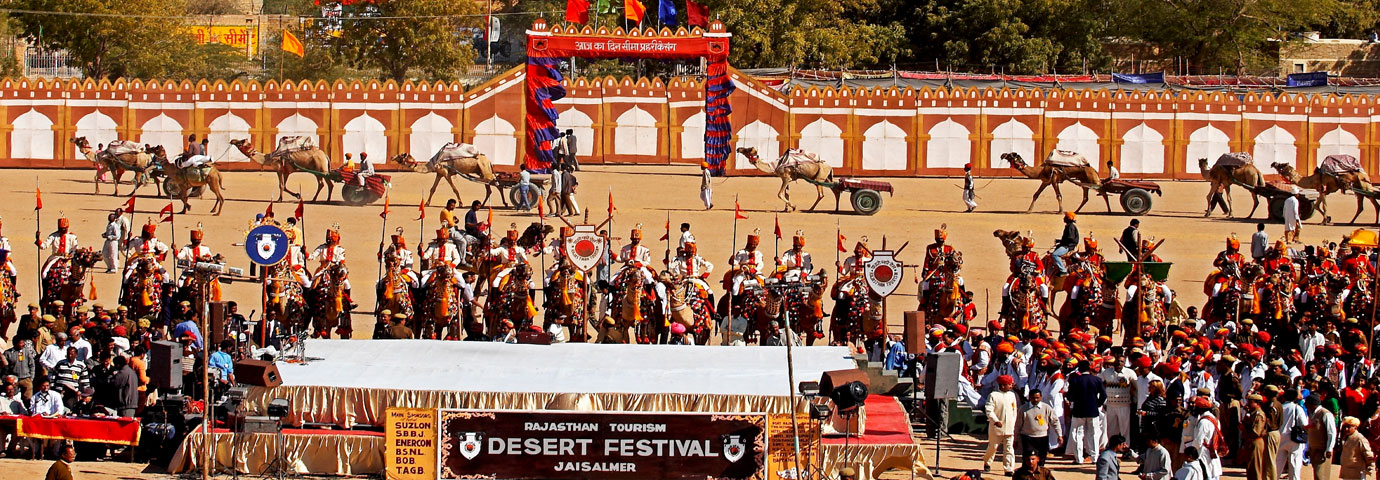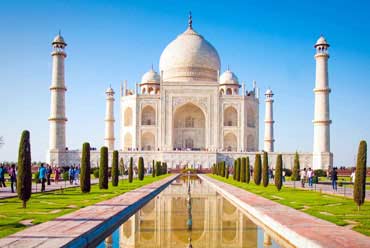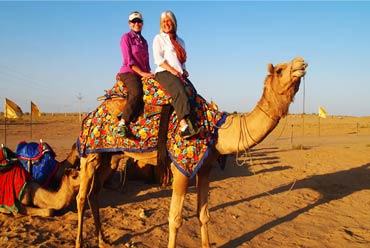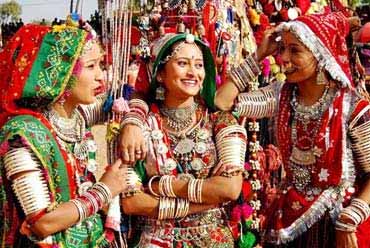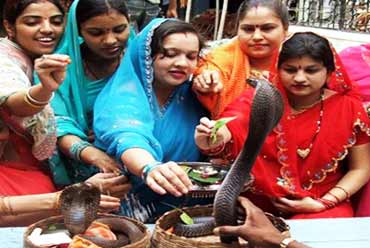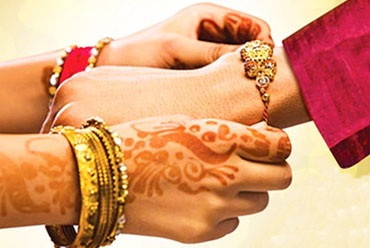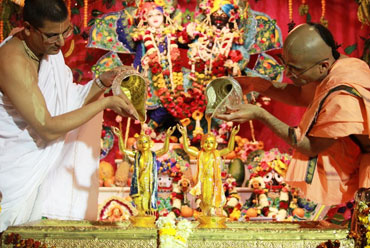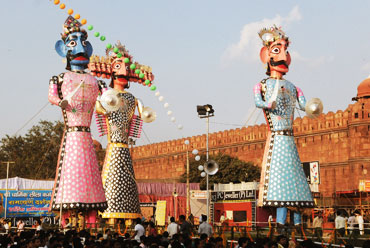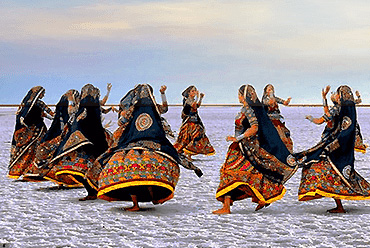Once a year during winters, the sands around Jaisalmer come alive with the brilliant colors, music and laughter of the Desert Festival. Dressed in brilliantly hued costumes, the people of the desert dance and sing haunting ballads of valor, romance and tragedy. The fair has snake charmers, puppeteers, acrobats and folk performers. Camels, of course, play a stellar role in this festival, where the rich and colorful folk culture of Rajasthan is on show. The festival closes with an enchanting sound and light show amidst the sand dunes on a moonlit night.
The Jaisalmer fort provides an ethereal backdrop to the annual desert festival. Sponsored by the Rajasthan State Tourism Corporation, this festival is a joyful celebration of the traditional performing arts and creative crafts of Rajasthan.
Celebrations
A few days before the spring full moon according to the Hindu calendar, musicians, dancers and performers from all over Rajasthan start moving in colorful camel caravans towards the golden town of Jaisalmer, which dons a festive look. The otherwise barren landscape is splashed with vibrant colors marking the opening of the Desert Festival. The 12th century fort of Jaisalmer, built in yellow sandstone, provides a fairytale background. Over the years, the desert dwellers in their solitude have woven a fascinating tapestry with threads of music and rhythm and the Desert Festival is a celebration of their heritage. It is a chance of a lifetime to see the folk art forms against the landscape that has nurtured them for hundreds of years.
With the arrival of the artists, a delightful series of programs begins in and around Jaisalmer. There is music everywhere and at every given hour. Through the winding lanes of the fortified town to the sand dunes and even the rivers of abandoned villages, the music casts a potent spell. Beginning at sunrise, it reaches its zenith under the umbrella of the star-studded sky. Though it is mainly a festival of the performing arts, there are several other events that give a glimpse of the desert culture.
Through the day, visitors can come face to face with the desert craftsmen. Exquisitely embroidered skirts, hand-woven shawls, rugs, carvings on wood and stone, camel decorations, embroidered leather bags, ethnic silver jewelry and terracotta are brought in from all over the desert. These skillfully achieved crafts are objects d'art for the handicraft buff.
Evenings are meant for the main shows of music and dance. Vibrating desert drums can be heard for miles around. Nearly all the variations of performing arts of these desert people are displayed. Continuing till late into the night, the number of spectators swells up each night and the grand finale, on the full moon night, takes place by silvery sand dunes.
Although the basic design of the festival remains the same, each year there are a few new events. Some of the most spectacular and memorable shows of past festivals have been the dream-like pageant, "Blood, Blade and Romance" on the sand dunes recreating the legendary past; the camel tattoo of the Border Security Force, which has a highly trained camel corps to guard the western border; and the pulsating folk ensemble of a hundred musicians.
Rituals
Camels are not just beasts of burden but an integral part of the desert life and the camel events confirm this fact. Special efforts go into dressing the animal for entering the spectacular competition of the best-dressed camel. Interestingly, there is a folk song to describe the making of the camel's necklace-the Gorband. Camel owners vie with each other for winning the camel races and a feeling of pride is discernible both in the eyes of the owner and his mount that wins. To add some more fun and color, the camel show has two unique events - the camel polo and the camel dance.
Other interesting competitions on the fringes are the moustache and turban tying competitions, which not only demonstrate a glorious tradition but also inspire its preservation. Both the turban and the moustache have been centuries old symbols of honor in Rajasthan.
Keeping the moustache twisted upwards meant keeping the pride intact while drooping moustaches conveyed complete surrender. Tying a turban is not only an intriguing tradition but an art as well. Varying styles of tying the turban and colors describe the caste, region and also the occasion. To the viewers, it appears complicated but those who have inherited the tradition tie a turban out of meters of cloth at the blink of an eye.
Legends
Unlike the major festivals of Rajasthan, the desert festival has no legends to recount. It is a created event but the music traditions of the desert are so fascinating that conceiving the musical festival came as almost a natural solution for facilitating their preservation. It was also inspired by the Music Festival of Salzburg-though totally different in concept and content. Both the towns exude music and have a heavy inflow of tourists. But unlike the Salzburg Festival, the shows of the Jaisalmer Festival are not ticketed. Sponsored by the state tourism corporation, it has been designed to promote tourism in the enigmatic Thar Desert.
Once the festival is over, it certainly leaves behind a nostalgic feeling. Some connoisseurs of music have been to the festival more than once and there is a tourist from Holland who has attended the festival four times.
Today, this traditional extravaganza is a coveted event for music lovers-the performers as well as the listeners. For the performers, it has become a prestigious event to participate in. It has also helped find new talent and expended patronage to many artistes.
Regional Celebrations
Jaisalmer is the only place where this desert festival is celebrated with great zest and zeal. Rajasthan being a popular tourist destination, the festival adds to its color.
Places To Visit
In order to witness its colorful festivities, one must visit Jaisalmer, the golden sand dunes where the festival takes place every year.
Getting There
One can reach Jodhpur from any of the major cities by air and from Jodhpur one can go to the venue of the desert festival by taking any of the road transport options that are easily available there. Jodhpur is the nearest big city to Jaisalmer, which is well connected to the venue of the Desert Festival. It is also well connected by train and buses.

